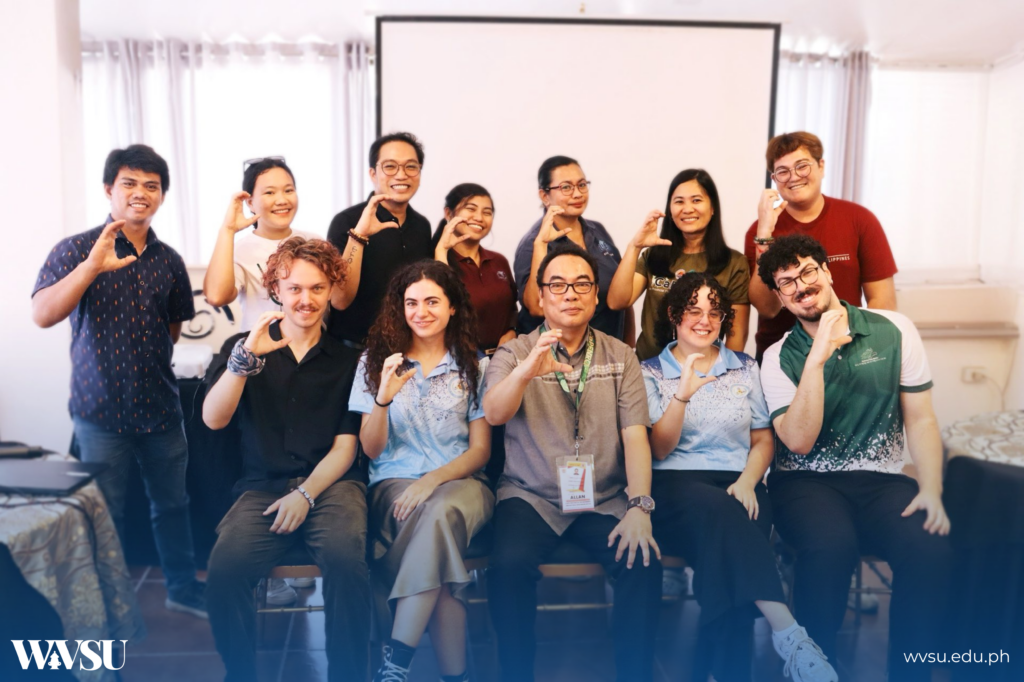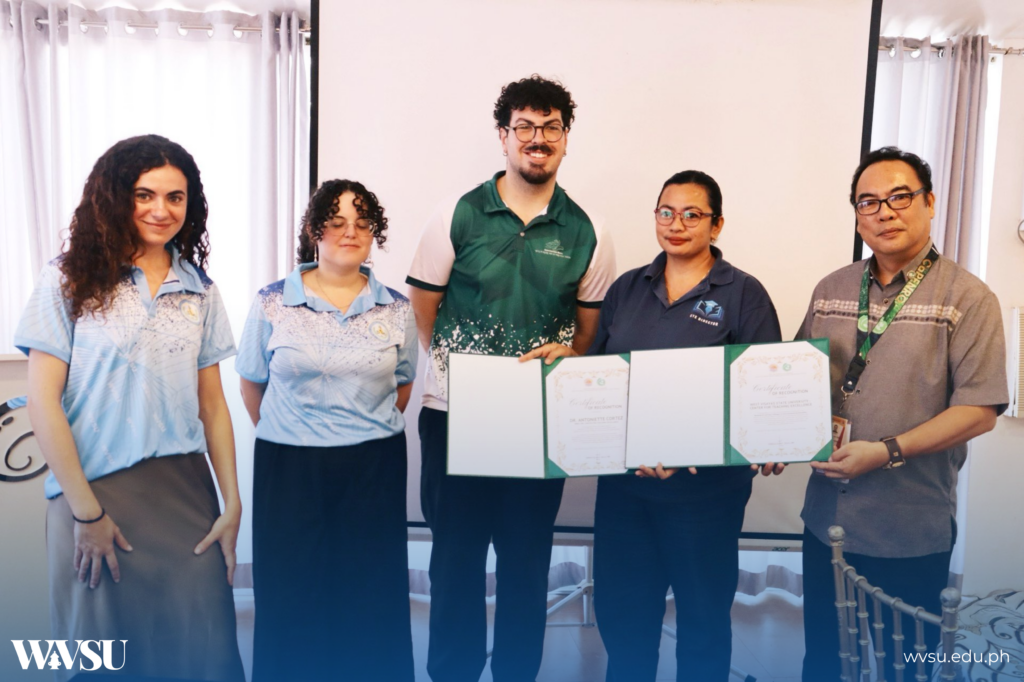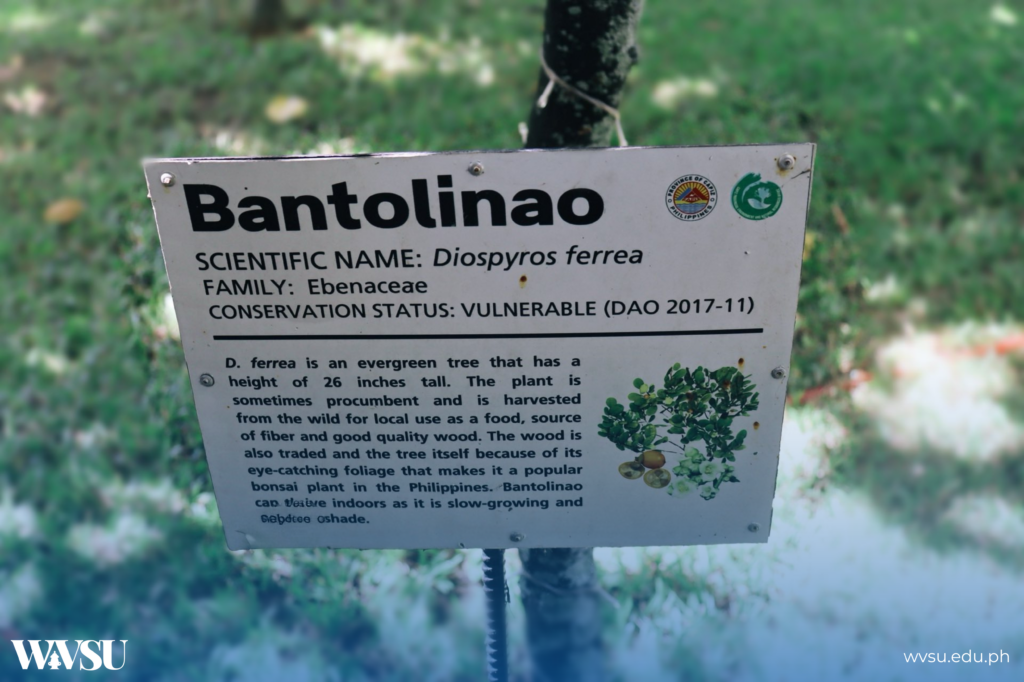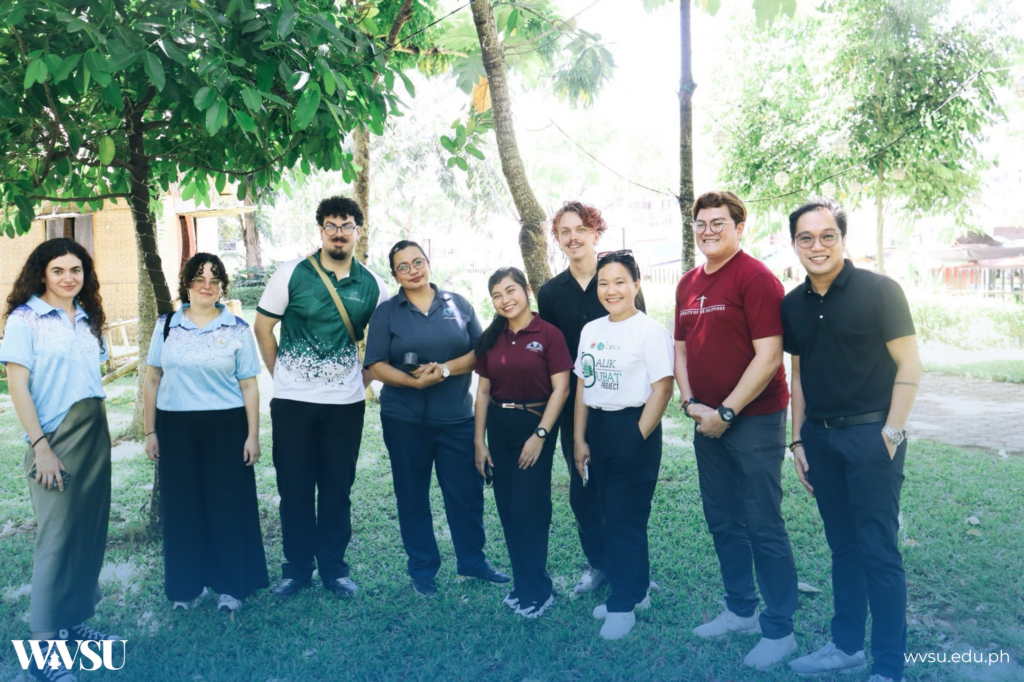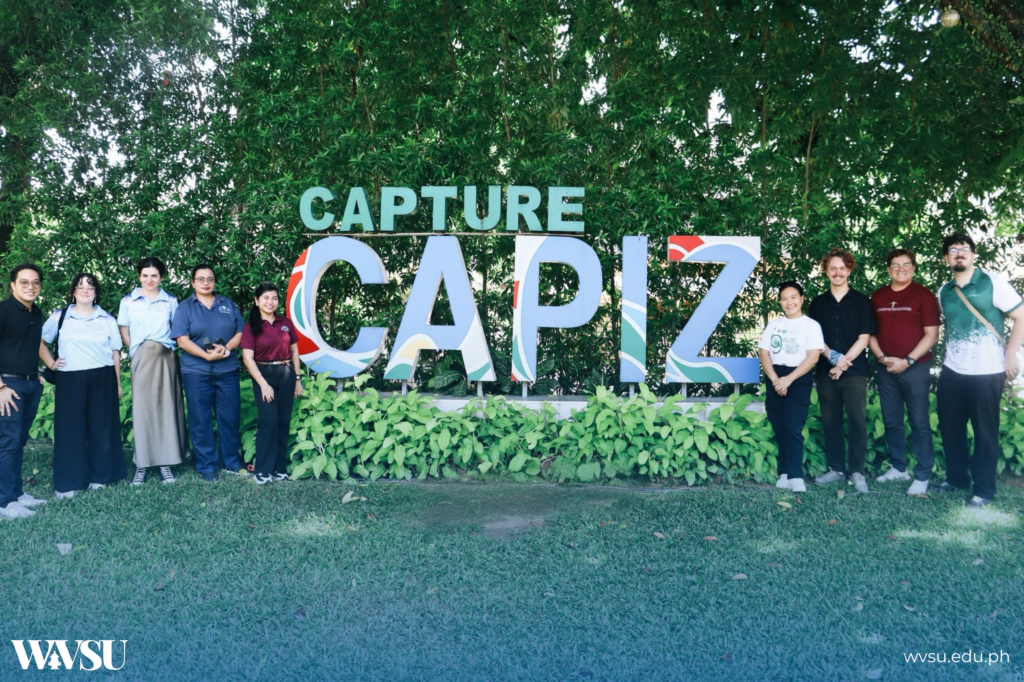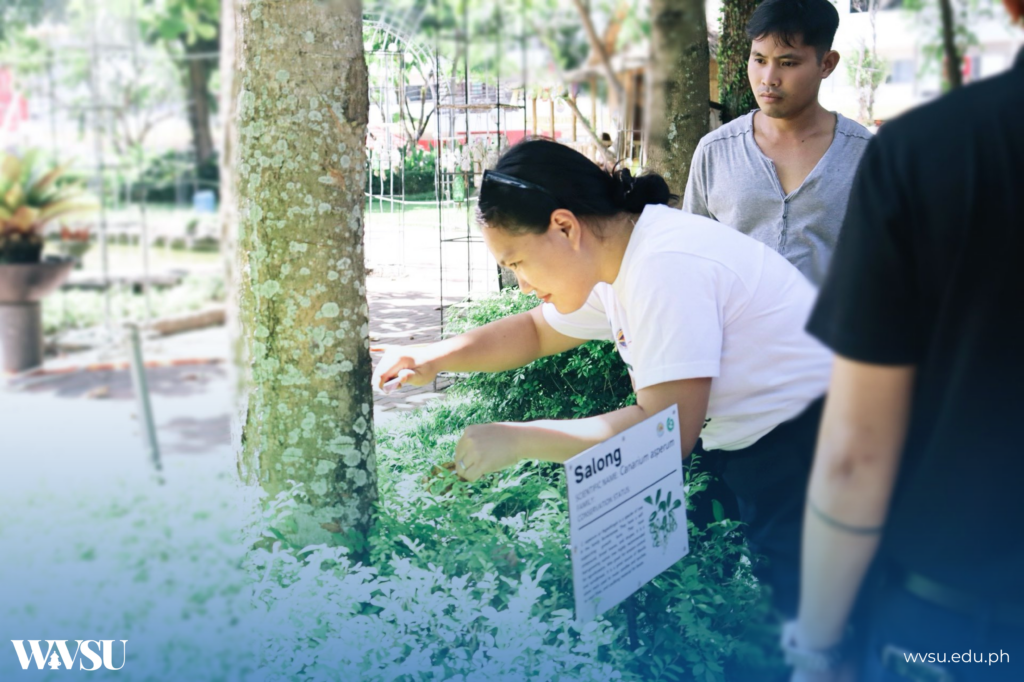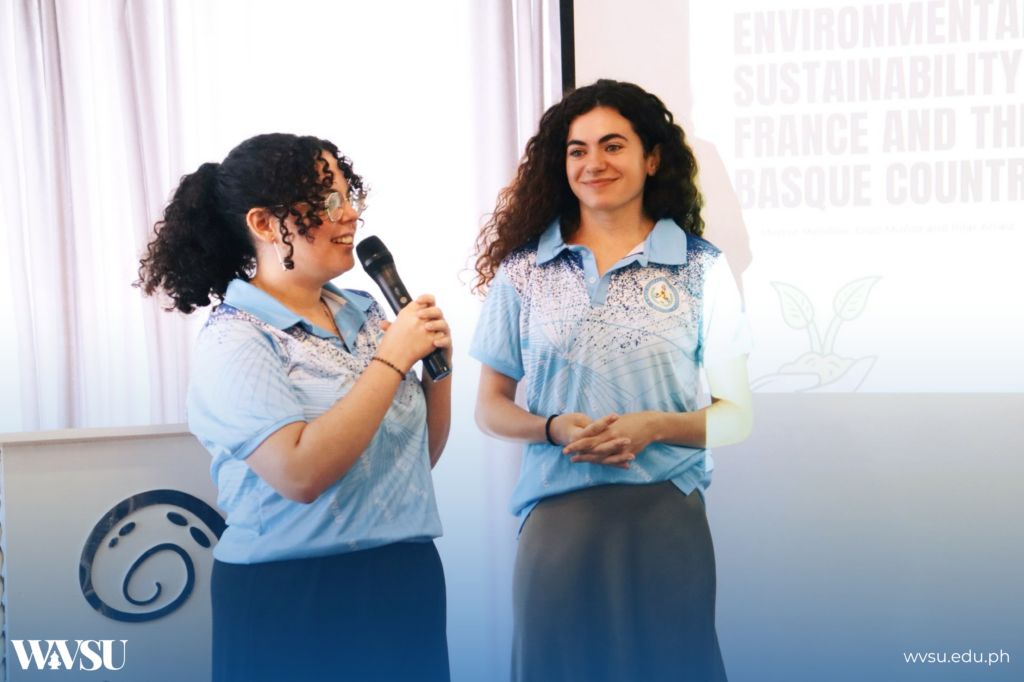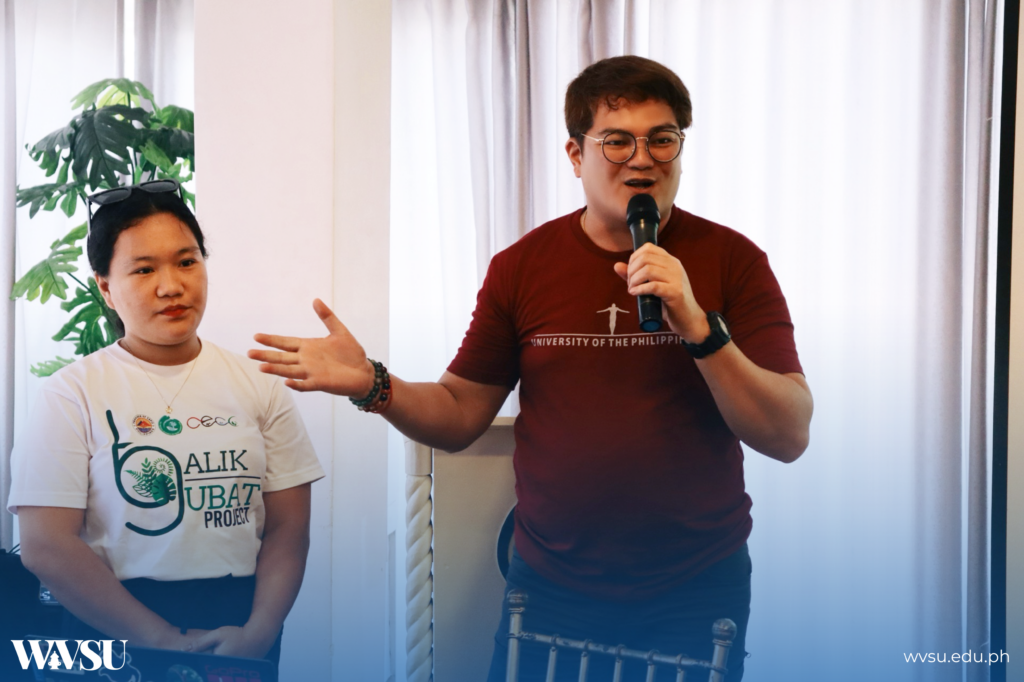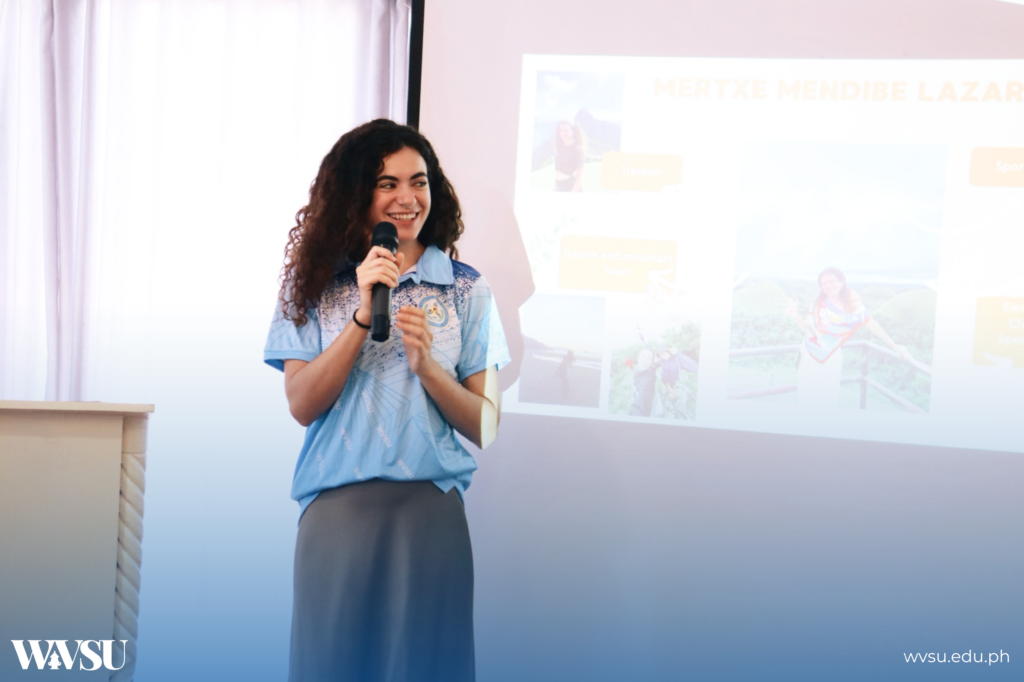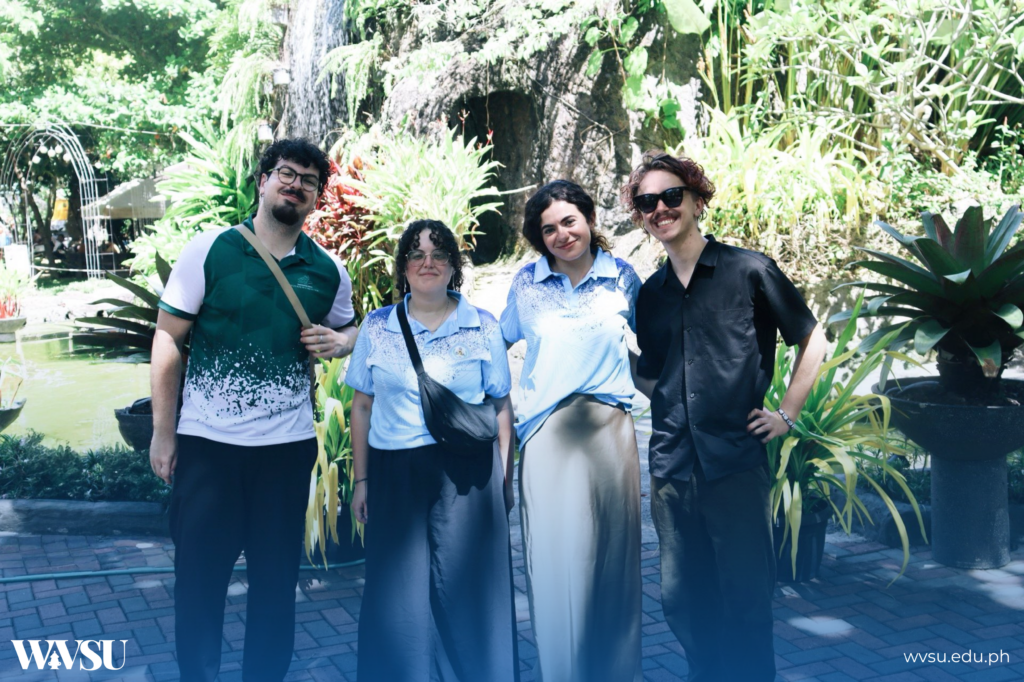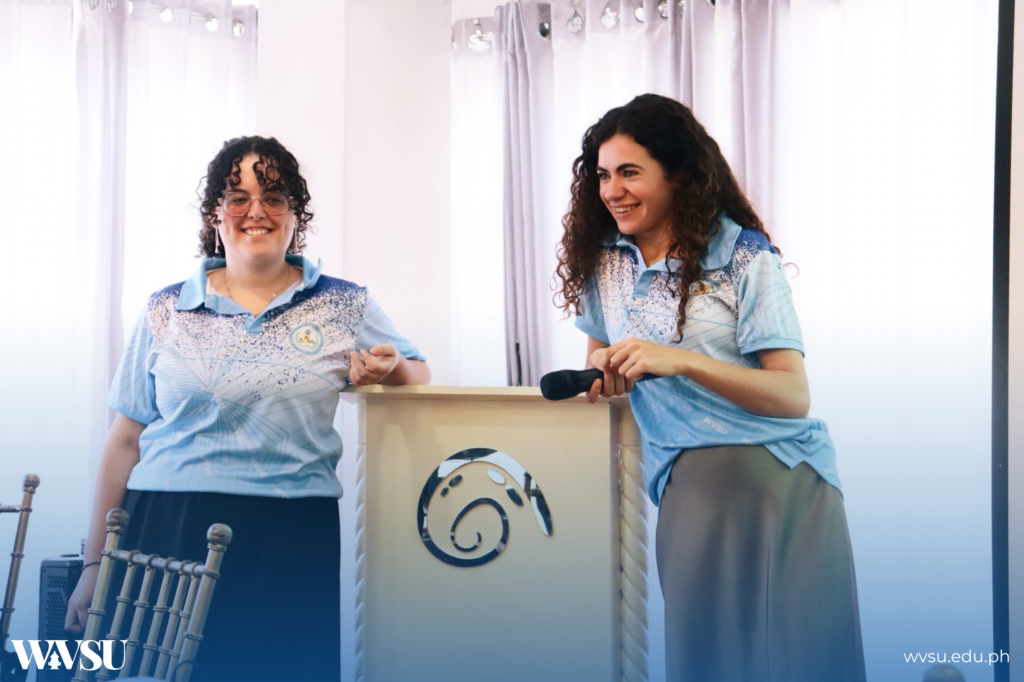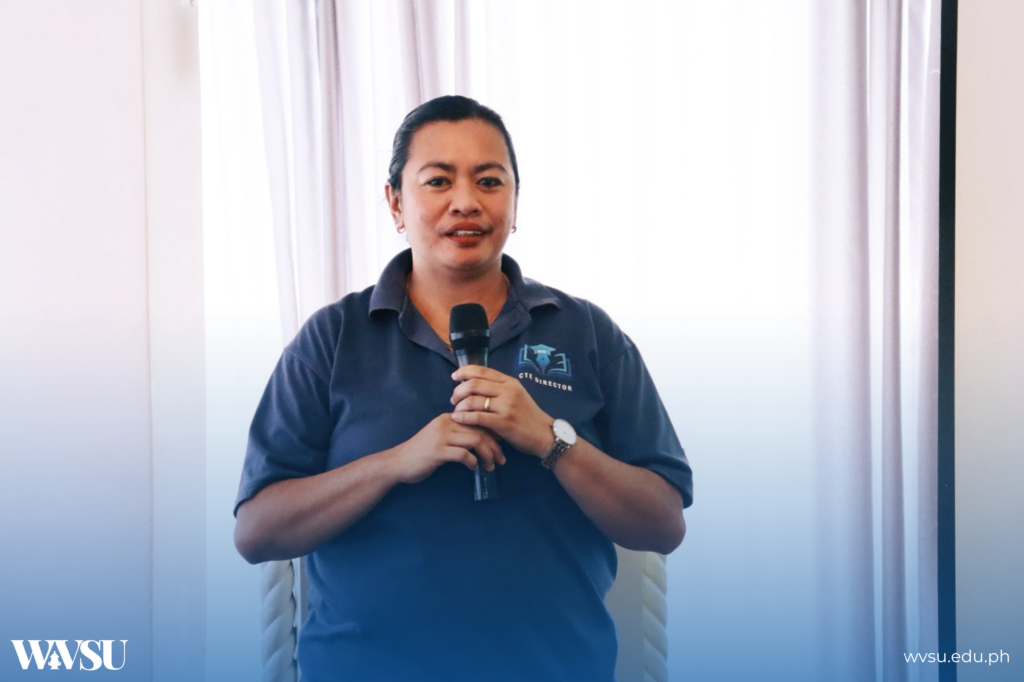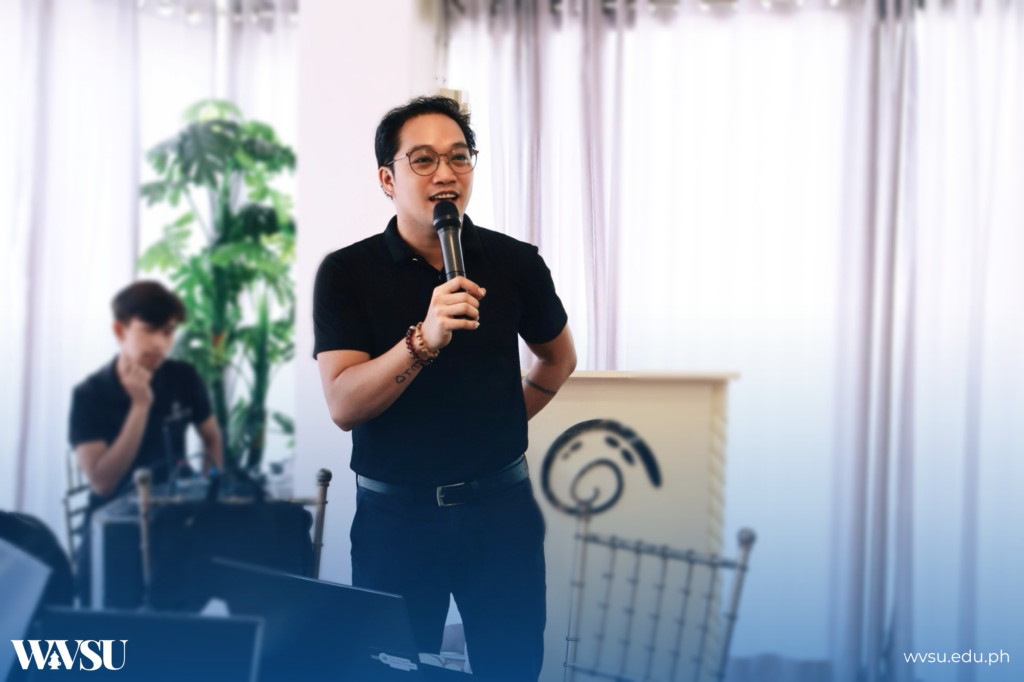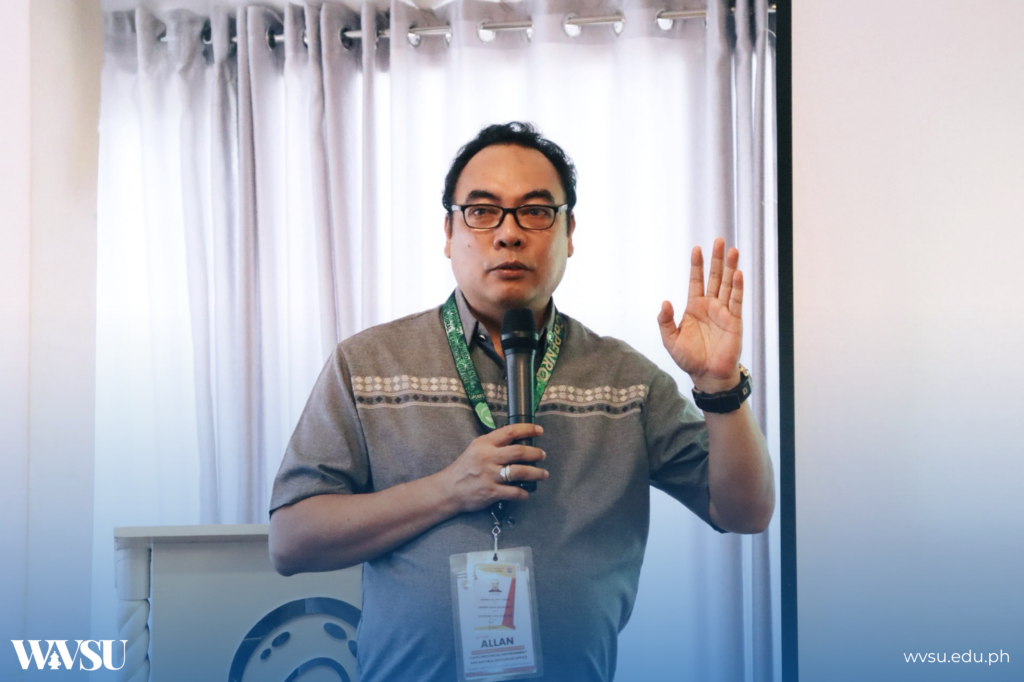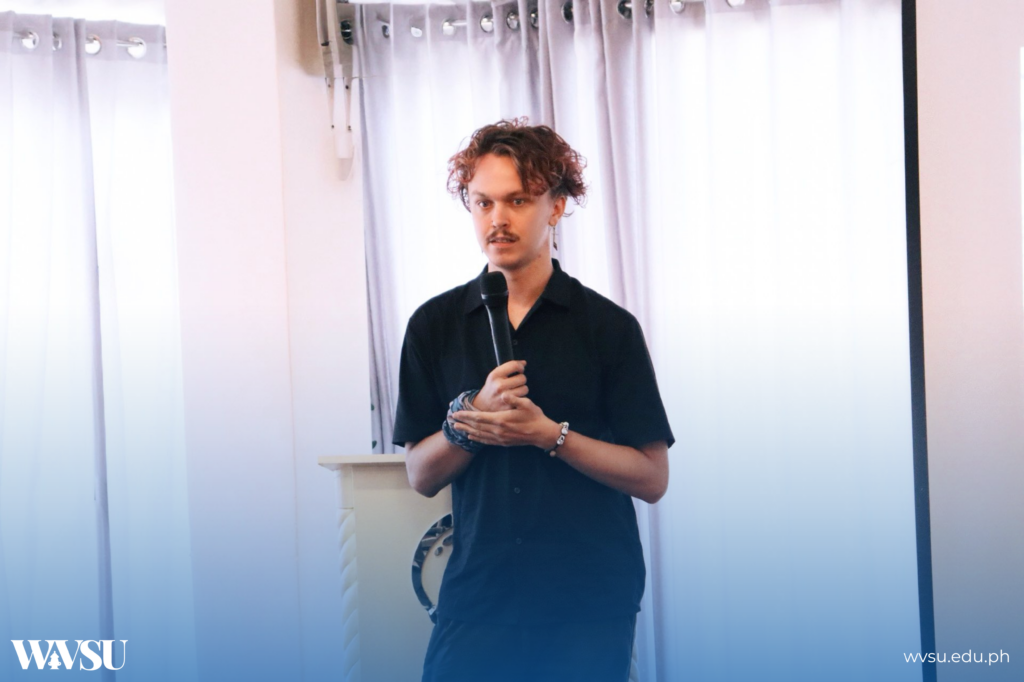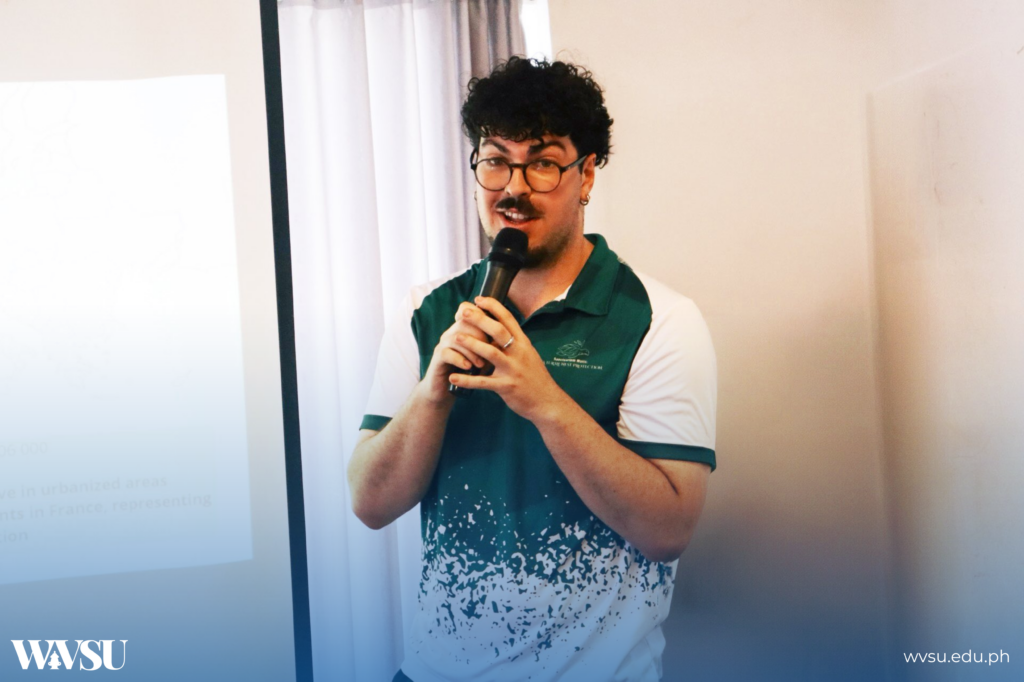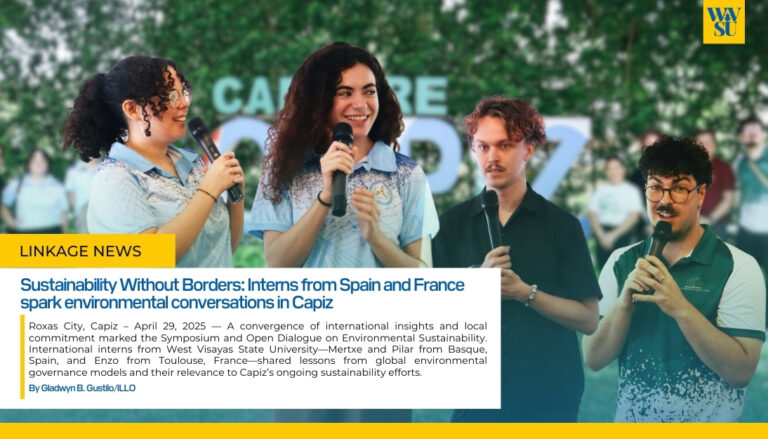Roxas City, Capiz – April 29, 2025 — A convergence of international insights and local commitment marked the Symposium and Open Dialogue on Environmental Sustainability. International interns from West Visayas State University—Mertxe and Pilar from Basque, Spain, and Enzo from Toulouse, France—shared lessons from global environmental governance models and their relevance to Capiz’s ongoing sustainability efforts.
Opening Messages and Institutional Support
The symposium opened with a welcome address by Mr. Ronald Allan F. Cullo, Environment and Natural Resources Officer of Capiz. He emphasized the urgency of climate resilience and expressed gratitude for the knowledge exchange enabled by the presence of the international interns.
Dr. Antoniette Cortez, Director of the WVSU Center for Teaching Excellence (CTE), delivered an empowering message on the critical role of educators in fostering environmental consciousness. She called for academic institutions to take the lead in developing future stewards of the environment.
Forum on Environmental Literacy and Community Empowerment
A key highlight of the symposium was the in-depth dialogue on environmental literacy, where both international and local voices stressed the need to embed sustainability education in formal curricula and community engagement programs.
The interns praised their experience in Capiz, noting the province’s potential for innovative environmental action through strengthened community participation and educational reform. Their testimonies underscored that informed citizens are essential to successful environmental governance.
Sectoral Updates from Environmental Leaders
Local environmental officials offered comprehensive updates on Capiz’s sustainability programs. Moon Alinsangan, DMO I and head of the Information, Communication and Education/Climate Change Adaptation Section, highlighted awareness campaigns tailored for schools and barangays.
For. Kiua Mariz Chavez-Penuela, EMS I and head of Forest Management Services, discussed current reforestation and biodiversity conservation projects.
Agr. Reynald Dejapa, EMS I and head of Coastal Resource Management, detailed mangrove rehabilitation and marine protection efforts.
Ma. Lyn L. Ronzales, EMS I and head of Pollution Control and Solid Waste Management, presented on waste reduction and community-based segregation initiatives.
Grassroots Perspectives and Reflections
Adding depth to the local dialogue, Jeff Finnagan Schwartz, a U.S. Peace Corps Volunteer, shared experiences from his community-based work in Capiz, reinforcing the message that sustainable change begins at the grassroots level.
Dr. Harold O. Beunvenida, Director of the Capiz Ecology and Conservation Center, concluded the panel discussions by emphasizing the need to balance ecological protection with socio-economic development. He noted that learning from other regions, while anchoring solutions in local culture and context, is key to long-term sustainability.
A Shared Path Toward Sustainability
The exchange of ideas—enriched by the international interns’ global experiences—highlighted the universal nature of environmental challenges and the collective responsibility to address them through education, inclusive governance, and local empowerment.
Participants capped off the event with a guided tour of the Capiz Provincial Park and the Philippine Native Tree Arboretum—symbols of the province’s dedication to biodiversity and ecological education.
By Gladwyn B. Gustilo/ILLO
